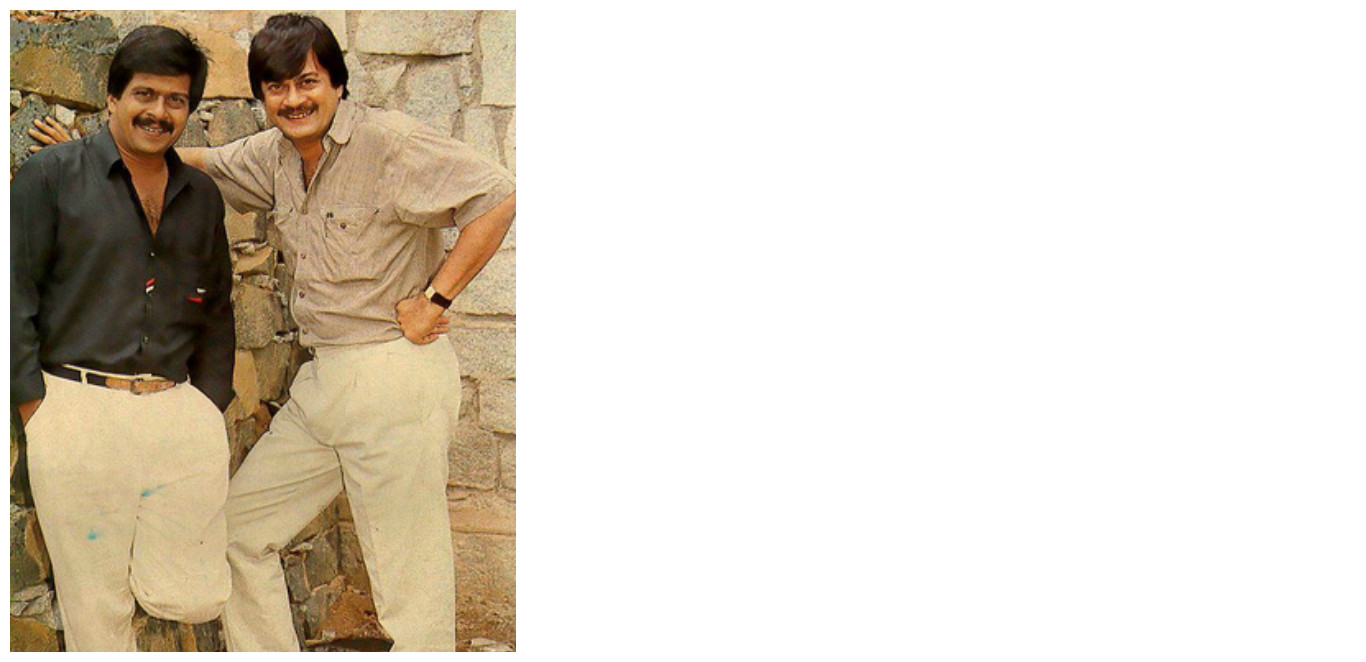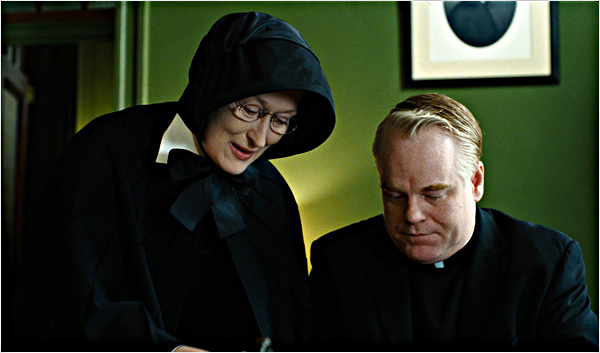Moksha
Moksha
5 stars out of 5 (A Masterpiece despite major interference from producers)
Director : Ashok Mehta
Writer : Raj Marbros
Hindi , 2001
With an acoustic backdrop of sea-waves composing their music, the opening credits are presented in dynamic aquamarine, etched over a nebulous shifting landscape. The prologue is painted in slick monochrome - a stone deck is picturized with an anchor positioned at its edge. Rain briefly drenches the stage and then in its restful dripping aftermath the hero is shown - sitting quietly through the downpour, his flowing coat flapping in the breeze, all-weather obsidian shoes neatly crossed in contemplation.
These sequences grace the start of Moksha, released in 2001 in India and received with little herald. Ashok Mehta, the gifted cinematographer, crafted the story and directed the film, with the screenplay by Raj Marbros. I watched this movie more than a decade ago, transfixed by its vaulting art and regard it with the same zenith of admiration now. Moksha handsomely fulfills the ambition inherent in its name, and audaciously constructs a magnificent narrative soaked in mounting pathos. One only rarely witnesses this level of vision and execution in mainstream Indian cinema.
The afore-described young man in the story is named Vikram (Arjun Rampal in a debut role of rippling emotional sinew). We see him at the beginning as he wallows in solitude and reflection, jumps into waterfalls, zooms around in his SUV and relaxes inside it smoking a cigarette. In the misty interior of its windshield, he leans forward to inscribe a word - R i ... before wiping it off in mid-composition. But certain urges die hard, and he is soon shown leaving a more lasting mark of fond vandalism.
Vikram's profound cogitation is revealed to have a very worthy purpose. Born into a wealthy mansion, he has a caring mother and a stern but concerned father (played by Suresh Oberoi). Not belonging to the type who itches to turn millions into billions, he expresses little interest in coverting his degree in law to a lucrative career. Early on, he voluntarily cuts short his apprenticeship in a high-profile but unsurprisingly heartless legal firm. An enraged Vikram resolves to open an altruistic company of attorneys which will exclusively take on the legal cases of the underprivileged. Rs.30 lakh ($75,000 at that time) need to be now arranged for.
A lovely young lady Ritika (Manisha Koirala) takes a liking towards this intense, horse-riding hunk. Giving her a tough time, and then topping it off by establishing a draconian pact with her, Vikram then finds that his minor triumphs are trumped by a swirling vortex of logistic difficulties. Anger, depression and a festering sense of failure add to his assets. Feeling severely compelled to open that charitable institution, Vikram takes his next step...
Mehta's work here is ripe with visual flair. The private universe of glossy stark monochrome that he designs for his hero, is grandly sombre and expansively aesthetic. Indoor sets, be it an office, court or a private bungalow, are picturized in neatly elegant production design. On a couple of occasions towards the end, he employs a dramatically poetic style of quickly cycling through a succession of visually similar frames before launching into an event of special significance - for example when a bullet shot rings out, its echo is cut in parallel with symmetric shots of landscape before seguing onto the main event. Monisha Koirala's allure (ably augmented by her lustrous emotions) is singled out, deservingly, for special focus. Her features are carefully presented - they are dressed in a range of fashionable outfits, her face is showcased in all its tenderness and sweet beauty, her figure is shown in varying forms - pleasantly voluptuous, innocently carnal, stylishly slim.
It is also a film of strikingly artistic images - a picture from the past re-surfaces, its chiselled features develop cracks from which two temporary bodies arise and unite in eternal embrace while a wave of blue silk swirls skyward. A thinker reclines over a bed of iron bars that stretch into the screen like railway tracks while a train silently sweeps past his world. A lover gazes at his woman's gently naked waist, lost in the magic of its soft seduction. And then there's the the hero's face looking upwards, his hands clasping shut his head from the cries of hell and heaven, eyes and features contorting in magnificent torture.
Structurally taut, the film slowly, inexorably gathers momentum as it nears its end. A courtroom episode in the second half is remarkable for its irony and notable for its clarity of narration. Vikram is the accused, appoints himself the defending attorney and proceeds in a confident lucid demonstration of how he could have gone on to become a fine lawyer . Neatly picking at and exposing the chinks in the testimony of witnesses, he seems to have almost sailed through while negating the assiduous efforts of the prosecutor (solidly enacted by Gulshan Grover). But an emergency threatens to suddenly cast him into grave danger, and he instantly hits upon the idea of a startlingly honest narrative, as detailed as it is concise. Its eventual result is a triumph of story-telling.
In his debut, Arjun Rampal deserves high praise for carving out an intense performance and ably internalizing the roiling character of Vikram. Rampal finishes the show with a paroxysm of transcendent emotion that is beyond fault. The film's cast is a dazzling ensemble of Hindi cinema stalwarts, many pitching in with brief performances - Suresh Oberoi, Danny Denzongpa, Naseeruddin Shah, Gulshan Grover, Kiran Kumar,the late Mohan Gokhale of the 'Mr.Yogi' fame, Paresh Rawal, Saurabh Shukla, Farida Jalal, Sushma Seth... Rarely has a superior Hindi film featured a list as eclectic and wide-ranging as this.
The songs are a significant sorepoint, and these lacklustre numbers detract from the superior quality of the narrative. But it is a testament to Mehta's instincts that even a misguided choice like Rajesh Roshan's musical input manages to provide a winner in the form of the film's lone memorable song- 'Jaan Leva'. The flowing vocals of Sukhwinder S. and Kavita K. wash over the orgiastic percussion, while both the dancers and the landscape wear a primal-chic design. Clad in ripped jeans and a weathered vest Arjun Rampal sports his muscles trudges in angst and dances on a note of resurgent liberation while a trident-wielding wicked temptress grooves with her minions.
The brothers Salim-Suleiman's background score becomes an organically integrated value addition, enhancing the mood throughout. Listen to how it quickly quietly inserts a note of evil when a character is revealed to suddenly halt in his tracks enroute a sprint for help, and how it provides a beautifully elegiac undertone to the ending.
Moksha thus becomes an implacable narrative about a system which is often infertile to justice, and about how this state of affairs triggers the hero's descent into a vicious spiral. Arjun loves his ambition for ensuring equality of law, and he loves his lady. But in this story there is no consummation of desire, only an orgasm of sorrow... and a climax of salvation in an apocalypse.
As a stunning revelation destroys his world in the terminal stages of the story, he sinks into an abyss from which he does not want to return. Fatalism creeps in despite the fact that what he desperately wanted before is now being handed to him on a platter. Emotional strength crumbles giving way to the power of regret. But all is not lost and he is still bestowed a supreme sigh of relief in the end -
"Mera tho sapna bhi thum ho aur sach bhi thum...ab na sapna hai na sach, bas thum hi thum ho... "
You are my reality and you are my dream...but now there's neither reality nor dream, just you and only you... "
*****
Questions for Revision - Did Arjun Rampal, fresh from modelling and with no acting background, succeed in doing what none of his compatriot coevals have done, namely to have his very first movie rank as a genuinely great film? Is Manisha Koirala painted in a more beautiful vision here than in her other films? Is justice for your heart the same as justice for your ideology? Was Ashok Mehta a man of sublime directorial faculties, whose further work in this vein was discouraged by the largely clueless Hindi film industry? You know what to do to find out.
UPN
UPNWORLD welcomes your comments.













0 COMMENTS
WRITE COMMENT